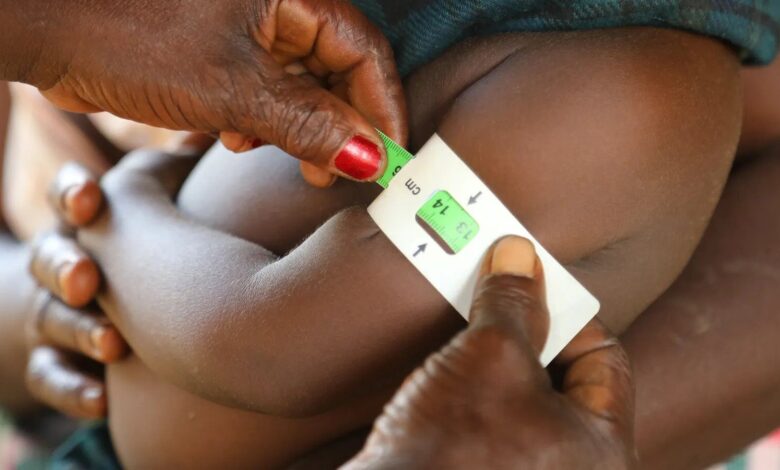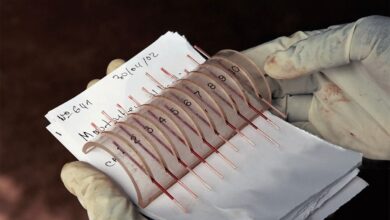
A community health worker measures the arm circumference of a child in Wulu Town, Konobo, to check for signs of malnutrition. Photo Credit: Peter Yeung
Health LiberiaFighting Disease: How Locals Can Be Health Workers Too
Determined to ease the burden of Sub-Saharan Africa as the origin point of many pandemics, Liberia adopted a new approach to breaking the pattern by making citizens from rural communities part of the crucial first line of defense against infectious diseases.
“If you’re building trust with the health workers and the communities, then this is a very effective way for the government to be kept abreast of goings-on,” says Robert Yates, director of the global health program at Chatham House. “If they have proper support, they can prevent, detect and respond to public health threats.”
The 4,000 community-appointed health workers play an important role as they provide surveillance and healthcare to rural and remote populations across Liberia’s 15 counties since the inception of the scheme in 2016. Each community health worker must be nominated by fellow villagers. Then they pass a literacy test, receive months of training, and engage with members of their community. They are in a position to spot infectious diseases before they become a bigger problem as well as debunk rumors and misinformation which are partly responsible for some of the major outbreaks. The National Public Health Institute of Liberia carries out surveillance for 21 diseases – yellow fever, tuberculosis, and measles to name a few. Considerable signs of progress are noticeable since the nationwide scheme was launched. Some 80% of the rural population estimated at one million residents have access to care. For instance, the proportion of malaria cases treated in less than 24 hours went from 47% in 2016 to 71% in 2021.



